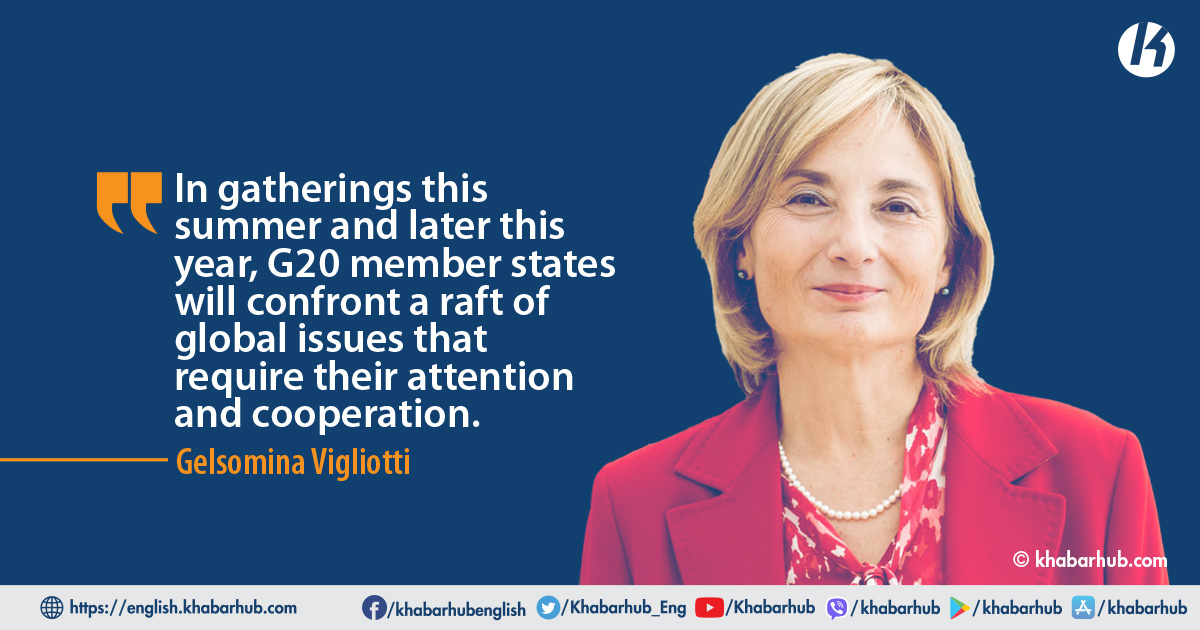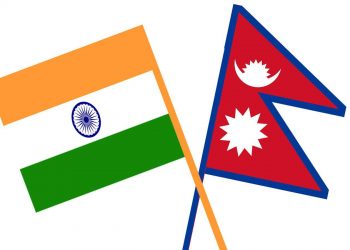In an age mediated by advanced technology, it is easy to forget that human beings – and life itself – depend entirely on fragile planetary conditions.
Now that a growing number of serious – if not existential – threats are confronting us, this is a basic truth with which we would do well to reacquaint ourselves. Climate change, critical supply shortages, biodiversity loss, and devastating pandemics are exposing our societies’ vulnerabilities like never before.
No country can hope to escape these challenges or tackle them alone. Although multilateral cooperation is difficult on a good day, it is most important when times are tough. It is in moments of crisis that we must overcome narrow interests and focus on cooperation, pooling our resources, and improving how we make and implement collective decisions.
This month’s G20 meetings in Indonesia come at one of those moments. Owing to Russia’s war in Ukraine, drought, and other factors, millions of people around the world are facing critical shortages of food and energy, which are occurring alongside record-breaking heatwaves in Europe, China, South Asia, and other parts of the world.
In the absence of concerted global action, these crises could easily escalate into large-scale humanitarian disasters.
G20 members represent 85% of global GDP, 75% of international trade, and two-thirds of the world’s population. If they can act as one, they can help to manage these challenges and set a course for others to follow.
This investment is expected to crowd in additional financing from the public sector to restore, expand, and sustain access to essential health services; increase financial risk protection; improve the availability of vaccines, medicines, diagnostics, devices, and other health products; scale up innovative primary health-care delivery models; and invest in the health workforce.
Those who turn their backs on cooperation and the common good should be held accountable, just as those who are squandering time and energy on violence and war should be condemned and deterred.
But states and governments are not the only actors in this global drama. To manage today’s crises, we also must bring the private sector on to the stage.
States simply do not have the resources or expertise to resolve supply shortages, scale up clean-energy deployment, or develop vaccines and therapeutics on their own.
Rather, their strength lies in engaging and mobilizing the full power and ingenuity of the private sector. That is what will determine whether, and how quickly, humanity curbs global warming, ensures sufficient food and clean water – both for current and future generations – and survives future pandemics.
International fora and institutions have a critical role to play in such mobilizations. Multilateral financial institutions, for example, can increase the impact of public funds many times over by guaranteeing loans to help finance desirable investments and reduce risks for private investors.
They can also provide invaluable advice in project planning, structuring, and implementation, owing to their technical expertise and experience working around the world.
For example, the European Investment Bank’s development arm, EIB Global, can leverage more than 60 years of experience in more than 150 countries. As part of Team Europe, it is helping EU institutions and member states advance the European Union’s Global Gateway.
The Global Gateway is an EU initiative to spur up to €300 billion ($305 billion) of investment in climate-change mitigation and adaptation, digital technology, sustainable transportation, health-care systems, education, and research in partner countries around the world.
Launched in late 2021, it is now part of the Partnership for Global Infrastructure and Investment, which the G7 unveiled last month with the goal of deploying $600 billion toward the same ends.
The COVID-19 crisis has underscored the threat posed by pandemics, which will become even more likely as a result of climate change and habitat loss.
International cooperation to boost investment in basic infrastructure, primary health care, and trained medical workers is desperately needed to prepare for future disease outbreaks, so that we can prevent them from becoming pandemics.
Multilateral financial institutions are designed to facilitate such cooperation. At a time when centrifugal global forces threaten to pull us apart, they can and must help build bridges – both literally and figuratively – to bring people closer together.
To that end, the EIB is helping to develop a financing strategy that can be adapted and applied to other issues globally. We are working with the World Health Organization, the European Commission, and the African Union to mobilize €1 billion of investment to strengthen primary health-care services in Sub-Saharan Africa, including by expanding access to vaccines.
The EIB will make available at least €500 million to help these countries meet the health-related Sustainable Development Goals.
This investment is expected to crowd in additional financing from the public sector to restore, expand, and sustain access to essential health services; increase financial risk protection; improve the availability of vaccines, medicines, diagnostics, devices, and other health products; scale up innovative primary health-care delivery models; and invest in the health workforce.
Such partnerships are critical to creating ecosystems that are conducive to private-sector engagement, especially when it comes to developing skills and investment in specialized human capital.
Faced with global challenges too big and too complex for any country to tackle on its own, global cooperation – not only between states, but also between governments and the private sector – is the key to success.
Multilateral financial institutions are designed to facilitate such cooperation. At a time when centrifugal global forces threaten to pull us apart, they can and must help build bridges – both literally and figuratively – to bring people closer together.
(Gelsomina Vigliotti is Vice-President of the European Investment Bank)
Copyright: Project Syndicate








Comment